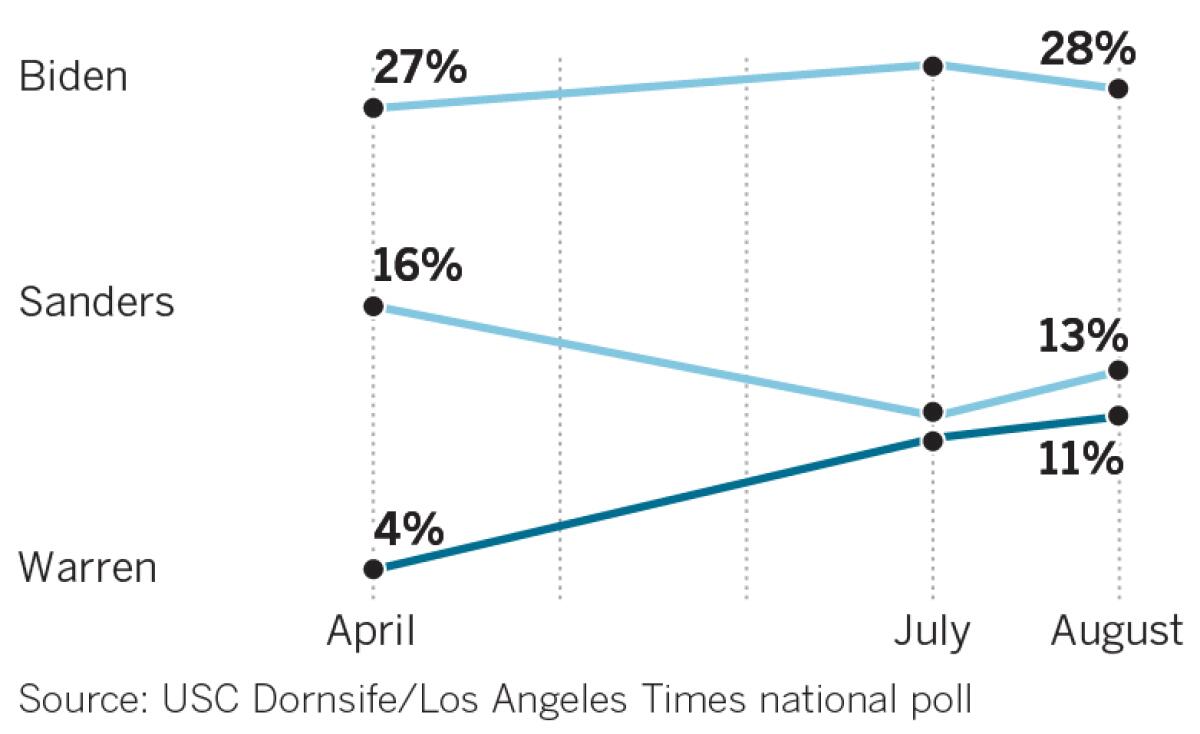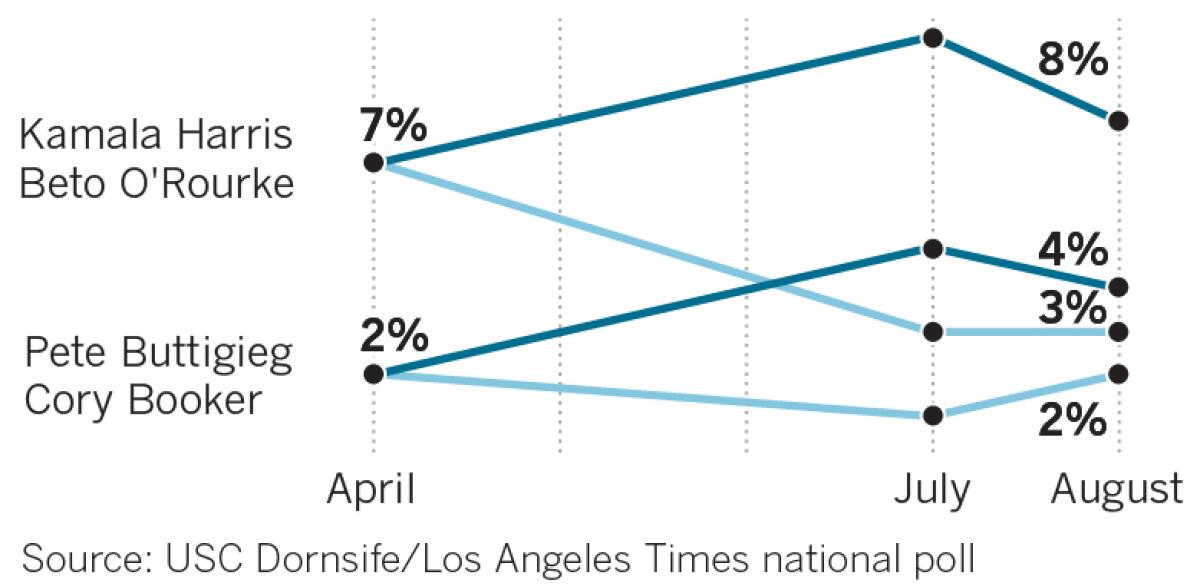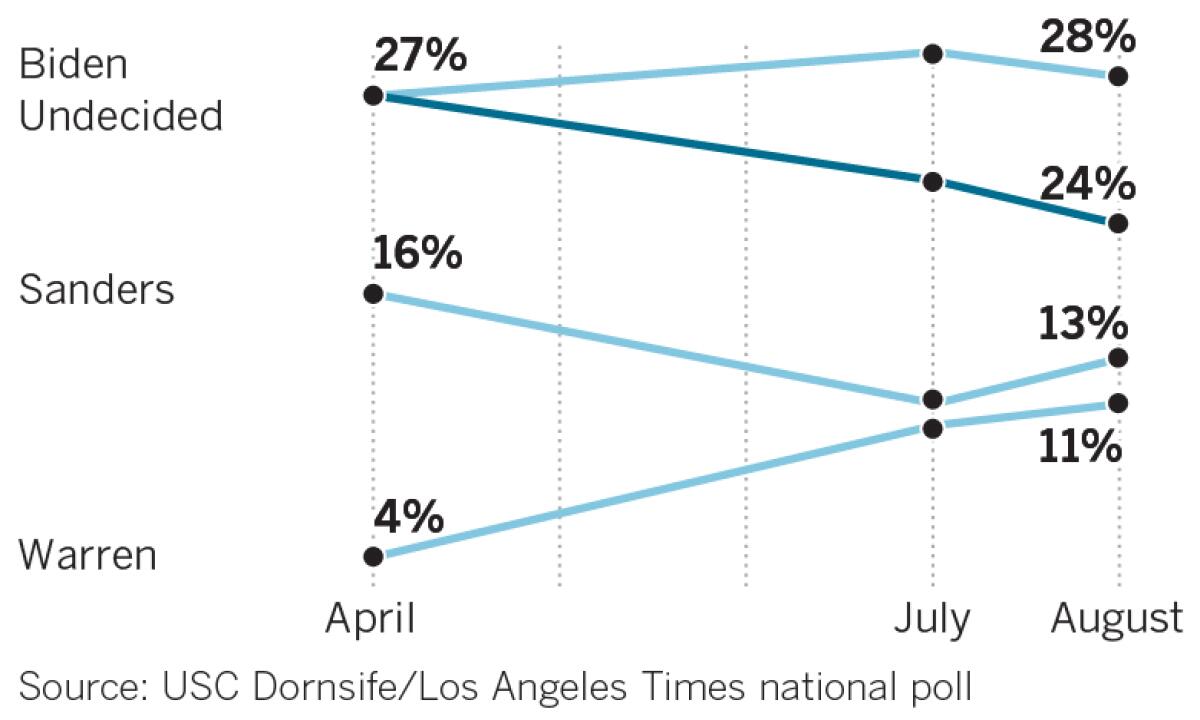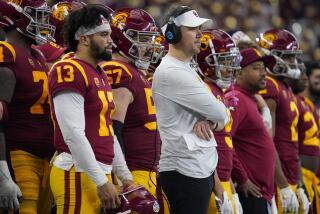Digging into the support for Democratic candidates in the latest USC/Times poll
- Share via
As he has in three USC Dornsife/Los Angeles Times polls conducted in April, July and August, former Vice President Joe Biden leads the field of contenders for the Democratic presidential nomination.
Biden has the backing of 28% of Democratic voters, the latest poll found. Vermont Sen. Bernie Sanders, with 13%, and Massachusetts Sen. Elizabeth Warren, with 11%, come next and are basically tied given the poll’s margin of error of 2 percentage points.
Support for Biden has remained relatively steady, while Warren is the only candidate who has consistently gained support since April. Her steady growth in support since the spring has come through consolidating the backing of college-educated, white liberals.
Warren has managed to match many of Sanders’ positions without being perceived by voters as being as far to the left, the poll finds.

Support for California Sen. Kamala Harris has faded. She had threatened to break into the first tier of candidates after June’s debate, but instead in August she lost many of the supporters she had picked up in July. Likewise, South Bend, Ind., Mayor Pete Buttigieg hasn’t been able to turn his strength in fundraising into support in the polls and has joined New Jersey Sen. Cory Booker and former Texas Rep. Beto O’Rourke in the low single digits.

A third tier of candidates has not been able to build momentum and gain sizable support among eligible voters. This tier includes entrepreneur Andrew Yang, Minnesota Sen. Amy Klobuchar and Hawaii Rep. Tulsi Gabbard.

About 1 in 4 of the Democratic primary voters say they are undecided, a sizable segment. Ideologically, those undecided voters are closer to Biden than to any of his major rivals, the poll found. That could give the former vice president an additional cushion.

The August figures come from the USC Dornsife/Los Angeles Times poll conducted from Aug. 12 to Sept. 8 among 5,367 adult American citizens, including 2,462 who said they planned to vote in a Democratic primary. The margin of error is 2 percentage points in either direction for the full sample and for the Democratic sub-sample.
Respondents were drawn from a probability-based panel maintained by USC’s Center for Economic and Social Research for its Understanding America Study. The poll was conducted in partnership with, and funded by, the USC Dornsife Center for the Political Future. Responses among all eligible voters were weighted to accurately reflect known demographics of the U.S. population. A description of the methodology, poll questions and data, and additional information about the poll are posted on the USC website.
More to Read
Get the L.A. Times Politics newsletter
Deeply reported insights into legislation, politics and policy from Sacramento, Washington and beyond. In your inbox three times per week.
You may occasionally receive promotional content from the Los Angeles Times.












